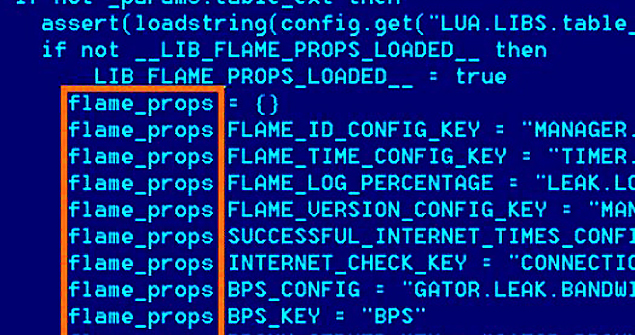The discovery last week of the latest weapon in the war being fought in cyberspace, has confirmed to me the fact that the war against Iran began some time ago. Flame is the latest in a series of computer viruses that have been found to have infected computers in Iran's nuclear industry. Despite Iran's consistent protests that its nuclear program is intended only for domestic purposes, the fact that it has denied access for inspectors from the International Atomic Energy Agency to see some of its facilities is clear indication that there is something to hide. This was reinforced last week when images were released by the US showing frantic work on the part of the Iranians to erase evidence of certain activities.
Out of all the types of warfare being undertaken, the development of nuclear weapons is one which plays into the hands of the computer experts the most. The nuclear industry is highly dependent on computerised systems for the control of the reactors, for the operation of the centrifuges and for much of the process that enriches Uranium to levels that allows for it to be used in nuclear weapons. For Israel, this comes as a something of a relief as few countries around the world have the same level of expertise in software and hardware as the Israelis. Israeli engineers have established a name for themselves in developing a number of products and features in the software arena which are "firsts" in the world. These same skills have allowed Israel to tap into much of what is happening in the Iranian nuclear industry, and to cause disruption to retard or damage the process.
Israel embraced the need to conduct cyber warfare some time ago. It is believed that unit 8200, which was established in the 1950s as an intelligence-gathering unit using the most sophisticated electronic technologies, was the first facility deployed to use its technological capabilities to wage cyber warfare. Since then, it is known that specialised units for this purpose have been set up by the IDF, the latest of which is addressing new media, including social networks. Not only is the IDF focusing on attacking enemy networks and computer systems, there is a great deal of work being done to ensure that its own systems adhere to the highest standards of security.
The latest Flame virus was discovered by Russian anti-virus company Kaspersky. Some reports suggest that Flame may have operated undetected for as long as 5 years, and succeeded in evading 43 anti-virus systems deployed on Iranian computers. During the time that it operated on individual computers, Flame was able to send copies of data stored on the computer back to its controllers. It was also able to take screen shots of the computer, as was as activate the computer microphone to allow eavesdropping on nearby conversations. If it infected 1,000 computers over a period of 5 years, a great deal of information could have been collected.
Flame comes hot on the heels of the Stuxnet virus which is reported to have destroyed centrifuges that were in use in Iranian nuclear plants. Stuxnet was discovered much more quickly because it infected many more computers and, therefore, came to the attention of the anti-virus systems much more quickly. There can be little doubt that for every virus we hear about, there are many more that go unpublicised.
Computer systems are in use in every aspect of a modern military environment. They are used for simple tasks like administration and data storage, as well as for more sophisticated tasks such as the command and control of the most sensitive and most destructive weapons systems. This gives massive opportunity for those who are able to use cyber warfare effectively, to infiltrate every corner of a country's security establishment. This is the enviable position that Israel finds herself in today. The next war against Iran will also certainly be fought on this basis.
This war has, in fact, already begun, and may have been ongoing for as long as 10 years. It is a war that has no room for the faint-hearted, and has a great deal at stake. Small errors can have huge consequences, and the survival of an entire nation could be resting upon doing everything right. When Israel was found 64 years ago, she was regarded as being at a huge disadvantage because of the small poorly-equipped army that she was able to deploy. Despite this disadvantage, Israel has survived and turned into one of the great military nations of the world. With the advent of cyber warfare, the game has turned very much in Israel's favour. The most unlikely of military powers is now more in the driving seat than ever before. A cyber war seems built to fit the strengths that Israel has. It would be foolish of the Iranians to think that they will be able to triumph in such circumstances.

No comments:
Post a Comment